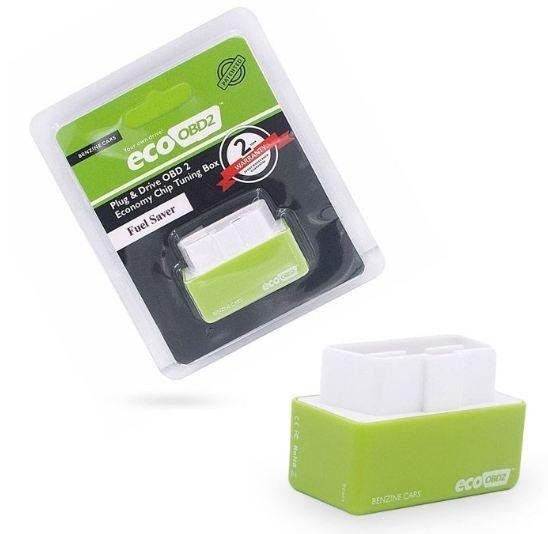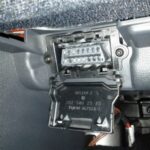In an era where fuel costs fluctuate and environmental consciousness is on the rise, the quest for fuel efficiency is more relevant than ever. Enter the Eco OBD2 plug, a device promising to optimize your car’s fuel consumption and reduce your trips to the gas station. But with numerous products flooding the market, and varying claims about their effectiveness, it’s natural to wonder: do Eco OBD2 plugs really live up to the hype? This review delves into the world of Eco OBD2 plug devices, examining their functionality, exploring user experiences, and ultimately helping you decide if they are a worthwhile investment for your vehicle.
Understanding Eco OBD2 Plugs: The Basics
Eco OBD2 plugs, also sometimes referred to as fuel-saving OBD2 chips or tuning boxes, are small electronic devices designed to connect to your car’s On-Board Diagnostics II (OBD2) port. This port is a standard interface in most cars manufactured after 1996, primarily used for diagnostics and accessing vehicle data. Manufacturers of Eco OBD2 plugs claim that by connecting to this port, their devices can communicate with your car’s Engine Control Unit (ECU) to optimize fuel efficiency.
The underlying principle is that these plugs aim to remap or fine-tune the ECU’s settings related to fuel injection and air-fuel mixture. Proponents suggest this adjustment can lead to more efficient fuel combustion, resulting in reduced fuel consumption and potentially improved engine performance. Brands like Effuel ECO OBD2 have gained attention in this market, promising significant fuel savings and ease of use.
How Do Eco OBD2 Plugs Claim to Enhance Fuel Efficiency?
The marketing behind Eco OBD2 plugs often highlights their ability to “learn” your driving habits and optimize fuel consumption accordingly. They are advertised as plug-and-play devices, requiring no complex installation or mechanical expertise. The process typically involves simply plugging the device into the OBD2 port, resetting it, and allowing it to communicate with the ECU.
The claimed mechanism of action revolves around analyzing data from the ECU, such as fuel injection timing, air intake, and engine load. Based on this data, the Eco OBD2 plug supposedly makes real-time adjustments to optimize the air-fuel ratio, aiming for a leaner mixture that burns fuel more efficiently. Some manufacturers also suggest their devices can increase engine torque and power, further contributing to fuel savings by reducing engine strain.
However, it’s crucial to approach these claims with a critical eye. The automotive industry is highly regulated, and car manufacturers already invest heavily in optimizing ECU settings for fuel efficiency and performance while adhering to emission standards. Therefore, the question arises: can a simple plug-in device significantly outperform the sophisticated engineering already present in modern vehicles?
Diving into Effuel ECO OBD2 Reviews: A Closer Look
Effuel ECO OBD2 is one of the more prominent brands in the Eco OBD2 plug market. It’s marketed as a user-friendly solution to reduce fuel costs and improve vehicle performance. Analyzing Effuel ECO OBD2 reviews can provide insights into real-world user experiences and the device’s actual effectiveness.
Positive aspects often highlighted in Effuel ECO OBD2 reviews include:
- Ease of Installation: Users frequently mention the straightforward plug-and-play nature of the device. Installation typically involves locating the OBD2 port (usually under the dashboard), plugging in the Effuel chip, and following a simple reset procedure. This ease of use is a significant selling point for those without automotive expertise.
- Potential Fuel Savings: Some reviews report noticeable improvements in fuel economy after installing the Effuel device. These users claim to have experienced a reduction in fuel consumption, leading to savings at the pump. However, the percentage of savings reported varies widely.
- Improved Engine Performance: A subset of reviews suggests that Effuel has led to a smoother driving experience and a slight increase in engine responsiveness. This perceived improvement in performance, although often subjective, contributes to the overall positive feedback for some users.
- Eco-Friendly Aspect: The notion of reducing fuel consumption aligns with environmental consciousness. Effuel is marketed as an eco-friendly product that can contribute to lower emissions, appealing to environmentally aware consumers.
However, critical perspectives and potential drawbacks also emerge from Effuel ECO OBD2 reviews and broader discussions about Eco OBD2 plugs in general:
- Variability in Results: A significant point of contention is the inconsistency of results. While some users report positive outcomes, many others experience negligible or no noticeable changes in fuel efficiency or performance. This variability raises questions about the device’s effectiveness across different car models and driving conditions.
- Skepticism from Automotive Experts: Many automotive experts and mechanics express skepticism about the claims made by Eco OBD2 plug manufacturers. They argue that modern ECUs are already highly optimized, and any external device making significant changes could potentially interfere with the car’s delicate systems or even void warranties.
- Misleading Marketing Claims: Some reviews and analyses point out that the marketing language used for Eco OBD2 plugs can be exaggerated or misleading. Claims of drastic fuel savings (e.g., up to 30% or more) are often not substantiated by independent testing or scientific evidence.
- Potential for “Placebo Effect”: In some cases, perceived improvements in fuel economy might be attributed to the “placebo effect.” Knowing they have installed a fuel-saving device, drivers might subconsciously alter their driving habits (e.g., driving more smoothly, reducing aggressive acceleration), which could lead to marginal fuel savings, regardless of the device’s actual impact.
- Lack of Transparency: Detailed technical specifications or independent verification of the technology used in Eco OBD2 plugs are often lacking. This lack of transparency makes it difficult for consumers to assess the legitimacy of the claims and the potential risks involved.
Choosing the Right Eco OBD2 Plug: Factors to Consider
If you’re considering trying an Eco OBD2 plug, it’s essential to approach the decision with careful consideration and realistic expectations. Here are some factors to keep in mind:
- Research and Due Diligence: Don’t rely solely on marketing materials. Seek out independent reviews, forums, and discussions from car enthusiasts and experts. Look for balanced perspectives that weigh both the potential benefits and drawbacks.
- Brand Reputation and Transparency: Opt for brands that are more transparent about their technology and have some level of established reputation. Be wary of overly aggressive marketing claims and brands that lack detailed information about their product.
- Understand Your Car’s ECU: Familiarize yourself with your car’s make, model, and ECU specifications. Compatibility with your vehicle is crucial, and some cars might be less receptive to aftermarket ECU modifications.
- Realistic Expectations: Approach Eco OBD2 plugs with realistic expectations. Significant fuel savings are unlikely, and any improvements might be marginal and vary depending on driving habits and vehicle condition.
- Money-Back Guarantees and Return Policies: Choose products that offer clear money-back guarantees or return policies. This provides a safety net if the device doesn’t perform as expected.
Conclusion: Are Eco OBD2 Plugs Worth It?
The landscape of Eco Obd2 Plug Reviews presents a mixed picture. While some users report positive experiences with devices like Effuel ECO OBD2, particularly in terms of ease of use and perceived fuel savings, a considerable amount of skepticism and variability in results exists. Automotive experts often question the effectiveness of these devices, and marketing claims should be scrutinized carefully.
For consumers seeking guaranteed and substantial improvements in fuel efficiency, investing in regular car maintenance, adopting fuel-efficient driving habits, and considering newer, more fuel-efficient vehicles might be more reliable and impactful strategies.
Eco OBD2 plugs might offer marginal benefits for some drivers under specific conditions. However, they are not a magic bullet for fuel efficiency, and their effectiveness remains a subject of debate. Before purchasing an Eco OBD2 plug, thorough research, realistic expectations, and a cautious approach are highly recommended. Explore user reviews, consider expert opinions, and weigh the potential benefits against the investment and the possibility of negligible results.
Ultimately, the decision of whether to try an Eco OBD2 plug depends on your individual circumstances, risk tolerance, and willingness to experiment with aftermarket automotive devices.


